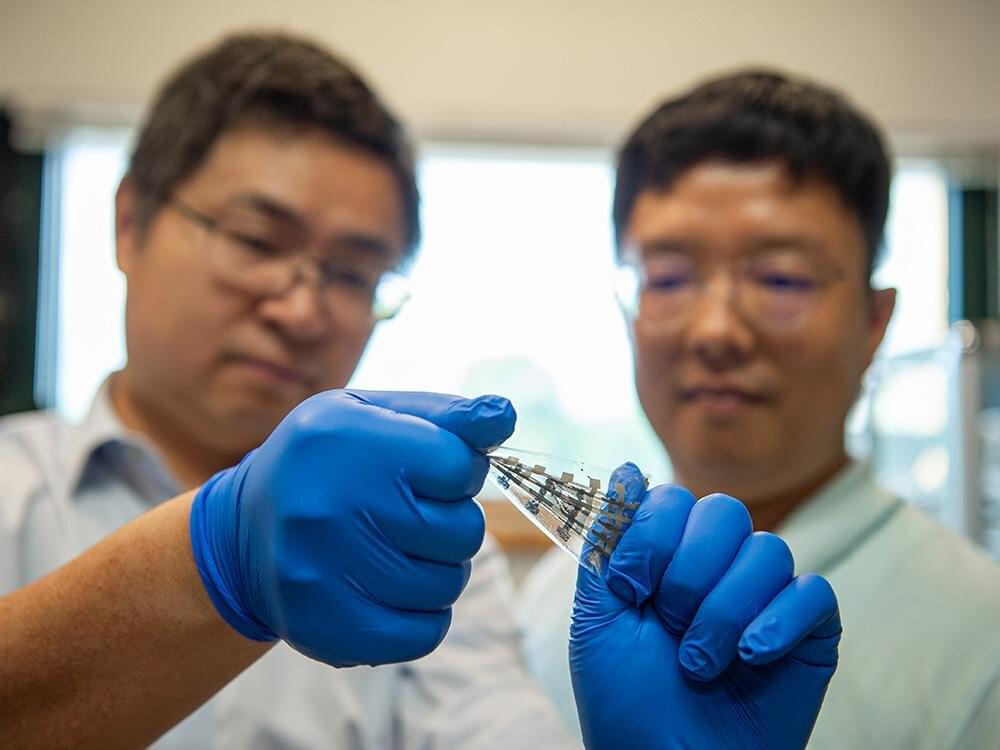Robotics and wearable devices might soon get a little smarter with the addition of a stretchy, wearable synaptic transistor developed by Penn State engineers. The device works like neurons in the brain to send signals to some cells and inhibit others in order to enhance and weaken the devices’ memories.
Led by Cunjiang Yu, Dorothy Quiggle Career Development Associate Professor of Engineering Science and Mechanics and associate professor of biomedical engineering and of materials science and engineering, the team designed the synaptic transistor to be integrated in robots or wearables and use artificial intelligence to optimize functions. The details were published Sept. 29 in Nature Electronics.
“Mirroring the human brain, robots and wearable devices using the synaptic transistor can use its artificial neurons to ‘learn’ and adapt their behaviors,” Yu said. “For example, if we burn our hand on a stove, it hurts, and we know to avoid touching it next time. The same results will be possible for devices that use the synaptic transistor, as the artificial intelligence is able to ‘learn’ and adapt to its environment.”
